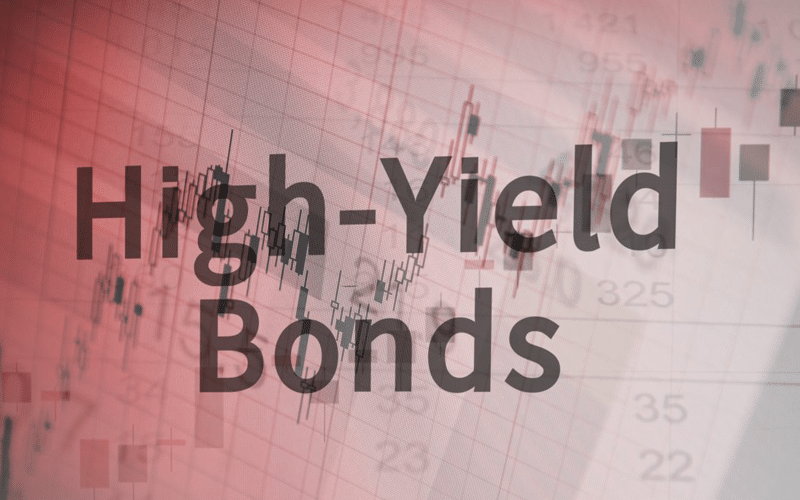Introduction to Junk Bonds
Bonds that carry a higher risk of default than most other bonds issued by governments and corporations are called Junk Bonds. It’s a debt instrument that has a low credit rating given by a credible rating agency, usually below the “investment grade”. Thus, there is a higher degree of risk involved when dealing with junk bonds. Junk bonds provide higher interest rates to entice investors. That is also why they’re known as “high yield bonds”.
Its common knowledge that an investor looking for significant profit growth within a short time goes for stocks, while those who prefer a more secure investment go for bonds. However, Junk Bonds combine the worst qualities of both these investment types. Junk Bonds are unsafe as an investment because of the risk of default, as well as the higher volatility rate associated with it. Managers often manipulate the default rate for junk bonds as well.
Who Issues Junk Bonds and Why?
Many diverse companies tap into the junk bond market, especially over the last decade. Today the issuers can be categorized into the following groups.
- Rising Stars: Rising stars refer to emerging start-up companies. They do not possess the experience, the operational history, or the size or the capital strength required to be qualified as “investment grade”. They thus turn to issue junk bonds to raise capital. Start-ups often issue bonds before their initial public offering, presenting a chance for investors to participate early in the business. There have been many instances of rising stars going on to become huge companies with high credit ratings within a few years, offering high returns to investors at the beginning.
- Fallen Angels: Those are former investment-grade companies that are struggling financially and experiencing hard times. Their credit ratings drop lower from the investment grade, causing them to issue junk bonds to raise capital. There have been instances where fallen angels have recovered from dire economic times and regained their investment grade.
Bond Ratings
Moody’s and Standard and Poor’s, two of the major credit rating agency, rate Junk Bonds as being “speculative”. This implies that there are uncertainties that may hamper the company’s ability to avoid default, such as making bad business dealings or unfavorable economic donations. Below we present some of the different ratings given to junk bonds.
- In Default: These bonds are currently in default and are rated D by Standard & Poor’s and C by Moody’s
- High Risk: High Risk is allotted to companies that are currently struggling to meet payments. They have the possibility of stopping a business if their financial conditions worsen. They are usually rated B or Ba by Moody’s and B or BB by Standard & Poor’s as they are vulnerable to adverse conditions.
- Highest Risk: Companies under this category are usually struggling hard. They require favorable economic and business conditions to recover and avoid default. They are usually rated CCC, CC, or C under Standard Poor’s and Caa, Ca or C by Moody’s.
Pros Of Investing In Junk Bonds
- Higher Returns: Junk bond investments usually produce larger growth when compared to investment grade-bonds when companies recover. Investors who are looking to get a higher profits within their fixed income portfolio can take advantage of the higher returns junk bonds have.
- Less Volatile Than Stock: Junk bonds do not possess the higher volatility of stocks, but are still highly correlated to them. However, they can also experience volatility if uncertainty creeps in regarding the issuers’ financial performance.
- Fixed Income Higher Than Other Bonds: Junk bonds provide fixed interest payments and a fixed income. Because of the level of risk an investor takes, junk bonds offer substantially more returns compared to other government or corporate bonds.
Cons of Investing In Junk Bonds
- Higher Risk Of Defaults: There is an unusually high degree of risk involved with junk bonds related to business defaults. The chances of a business defaulting are very high, resulting in the investor losing all of his/her initial investment. Thus traders should conduct research and analyze the credit risk of the company behind the junk bond before purchasing them. In the case of high yield mutual funds, this is done by the manager.
- Interest Rate Increase: Junk Bonds are always susceptible to interest rate increases. This is because companies behind junk bonds usually borrow on the short-term money market and lend on the mortgage and long-term markets. In such a situation, if the yield curve flattens, banks become less willing to offer loans, preventing the companies from being able to refinance or issue new bonds. Thus, bond prices go down when interest rates increase.
Conclusion
Junk Bonds can appear like a good way to earn some fixed income for some investors. They offer a pool of low rated debt obligations. Through diversification of portfolios, investors can reduce the risk of investing in companies that are struggling financially. However, investors have to be aware of the risks involved in investing in junk bonds. After conducting enough research, junk bonds can be added to one’s portfolio. This is because of its ability to reduce the overall volatility of a portfolio, as well as its potential to provide higher income, both of which can be considered as enough reasons to consider junk bonds.








